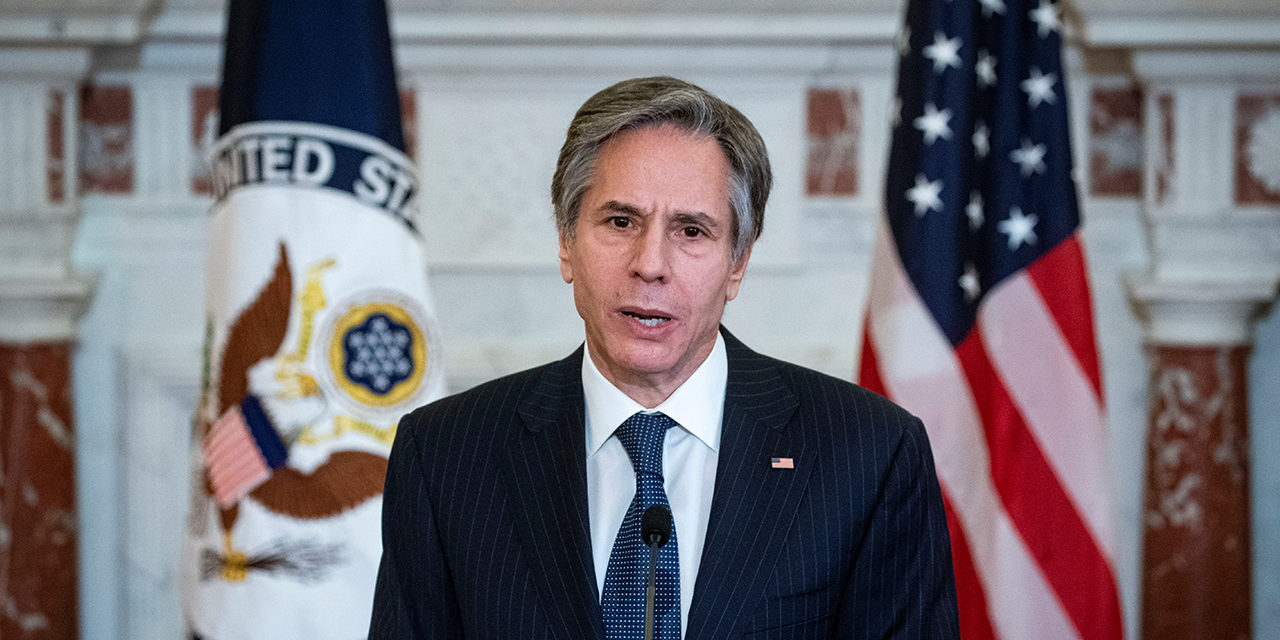Is abortion a “human right?” That’s the perspective of the new Secretary of State Antony Blinken, who recently announced that the current administration would be taking a broader approach to human rights issues, focusing less on religious freedom and private property and more on abortion and LGBT issues.
“Some have argued that it’s not worth it for the US to speak up forcefully for human rights – or that we should highlight abuse only in select countries, and only in a way that directly advances our national interests,” Blinken told reporters.
“But those people miss the point. Standing up for human rights everywhere is in America’s interests,” he continued.
This apparently includes abortion.
“Women’s rights—including sexual and reproductive rights—are human rights,” Blinken said.
Shouldn’t human rights include those of children in the womb? Who are, by the very essence of their unique DNA sequence, equally as human as any other person living on this planet?
The preamble of the United Nations (UN) Universal Declaration of Human Rights states, “Whereas recognition of the inherent dignity and of the equal and inalienable rights of all members of the human family is the foundation of freedom, justice and peace in the world.”
As the most vulnerable members of the “human family,” it would seem obvious that preborn babies should be included in any measure aimed at ensuring that they receive “equal and inalienable rights.” But that isn’t the position of the new administration.
When Blinken was first confirmed as the nation’s newest Secretary of State, pro-abortion groups applauded his confirmation.
Planned Parenthood Global wrote on Twitter, “Congrats to @ABlinken on his confirmation as Sec of State. We look forward to strong leadership from the State Dept, including undoing the harm of the #GlobalGagRule & supporting SRHR across the foreign policy. We are ready to work together to advance global health & human rights.”
The expanded Mexico City Policy, instituted by the previous administration, prevented nongovernmental organizations (NGOs) from receiving government grants if they promoted or provided abortion services as part of their health care programs. It’s often referred to in the pro-abortion groups as the “gag rule.”
The president of Planned Parenthood agreed, with Alexis McGill-Johnson tweeting, “We at @PPact are ready to work with @ABlinken in the days, weeks, and years ahead to advance sexual and reproductive health and rights around the world.”
Blinken is also in the process of dismantling the religious freedom initiative known as the Commission on Unalienable Rights. The current Secretary argues that the decision was made in order to address what the current administration considers “unbalanced views” and broaden the focus towards other issues, including the LGBT community.
“We will stand firm behind our commitments to human rights, democracy, the rule of law,” Blinken said in a speech delivered at the State Department. “And we’ll stand up against injustice toward women and girls, LGBTQI people, religious minorities, and people of all races and ethnicities.”
“There is no hierarchy that makes some rights more important than others,” Blinken said at another event.
But is that necessarily true?
Thomas Paine, who famously advocated for independence from Great Britain in the colonial book Common Sense, wrote, “Spiritual freedom is the root of political liberty…As the union between spiritual freedom and political liberty seems nearly inseparable, it is our duty to defend both.”
Can any society really experience freedom if its religious liberties aren’t protected or if life in the womb is not considered worthy of protection? The answer is likely not.
Focus on the Family has 14 international offices dedicated to supporting nd helping families across the world.
Photo from ALEXANDER DRAGO/REUTERS






